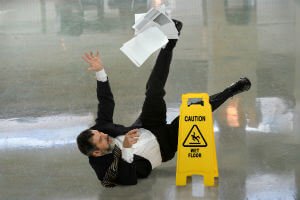 You may be able to sue your gym for an injury, even if you signed a liability waiver. However, these types of claims can be complicated and may depend on the circumstances of your injury and whether another’s negligence played a role in you getting hurt.
You may be able to sue your gym for an injury, even if you signed a liability waiver. However, these types of claims can be complicated and may depend on the circumstances of your injury and whether another’s negligence played a role in you getting hurt.
An experienced South Bend premises liability lawyer from Pfeifer, Morgan & Stesiak is prepared to discuss your potential claim in more detail during a free and confidential consultation. If you have a viable case, we can discuss how we may be able to help you pursue compensation for the damages you suffered.
Types of Liability Waivers Gyms Often Use
All business owners are required by law to keep their property safe to prevent injuries to customers and guests. Gyms are also required to take reasonable steps to ensure the safety of their property by regularly inspecting it for potential dangers and correcting them in a timely manner. If the owner of the gym knew about a hazard or should have known about it, he or she may be held liable for the damages that result.
Many gym owners attempt to limit their liability for any injuries that may occur by requiring members and others who use the facility to sign a liability waiver. The general language of this type of document states that the guest waives his or her right to sue the gym for an injury.
There are a few variations of liability waivers that gyms may use, some of which may not hold up in court:
- Total waiver of liability – This blanket disclaimer typically states that the gym cannot be held liable for any injury that occurs to a guest on the premises. However, because these are overly broad, a court may determine they are unenforceable.
- Waiver for intentional acts – This type of waiver attempts to disclaim any injuries that result from intentional acts committed by the owner or any of his or her staff members. However, courts may not enforce them because they have been found to be against public policy.
- Waiver for negligence – Waivers of negligence generally state that the gym will not be responsible for injuries caused by negligence of either the gym or employed staff.
If you signed a liability waiver, and were injured in a gym, we recommend that you consult with one of our knowledgeable lawyers to determine whether there may be an argument that supports why the waiver should not be enforceable.
Assumption of Risk
Assumption of risk is a legal defense that may likely be raised by the gym owner in a personal injury case. It means you knew you could get injured by engaging in the activity and still chose to do it.
Gym injuries are not uncommon. People pull muscles or drop equipment on themselves every day, so the facility owner may argue that you chose to join the gym knowing that you could be injured.
There are two forms of assumption of risk:
- Express assumption of risk – Express assumption of risk means that you were told the specific risks of the activity and signed a statement or verbally agreed that you understood the risks.
- Implied assumption of risk – Implied assumption shows your willingness to participate in a dangerous activity, such as if there is a sign by a piece of equipment with warnings and you choose to use it any way.
Arguments You May Be Able to Use to Overcome a Waiver
There are a few arguments your attorney may use against the liability waiver you may have signed:
- Vague and ambiguous language – The wording of the waiver was confusing, and a reasonable person could not understand it.
- Gross negligence – If a gym showed a reckless disregard for client safety, your personal injury lawyer may argue that the waiver of liability should not be effective.
- Public policy – In the interest of the public health and safety, the court may decide not to enforce a waiver of liability.
Contact Us for a Free Consultation
If you were injured at a gym where you signed a liability waiver, you should consider contacting the lawyers at Pfeifer, Morgan & Stesiak for a free assessment of your potential claim. You can learn about the factors involved in a premises liability claim and get answers to your legal questions.
There is no obligation to hire us, and it costs you nothing to find out whether we may be able to help you recover damages for your injuries. We accept premises liability cases on contingency, so you have no upfront fees to pay if we represent you. We only get paid if we secure compensation on your behalf.
Our phone lines are open 24/7. Get started today by calling: (574) 444-0741













